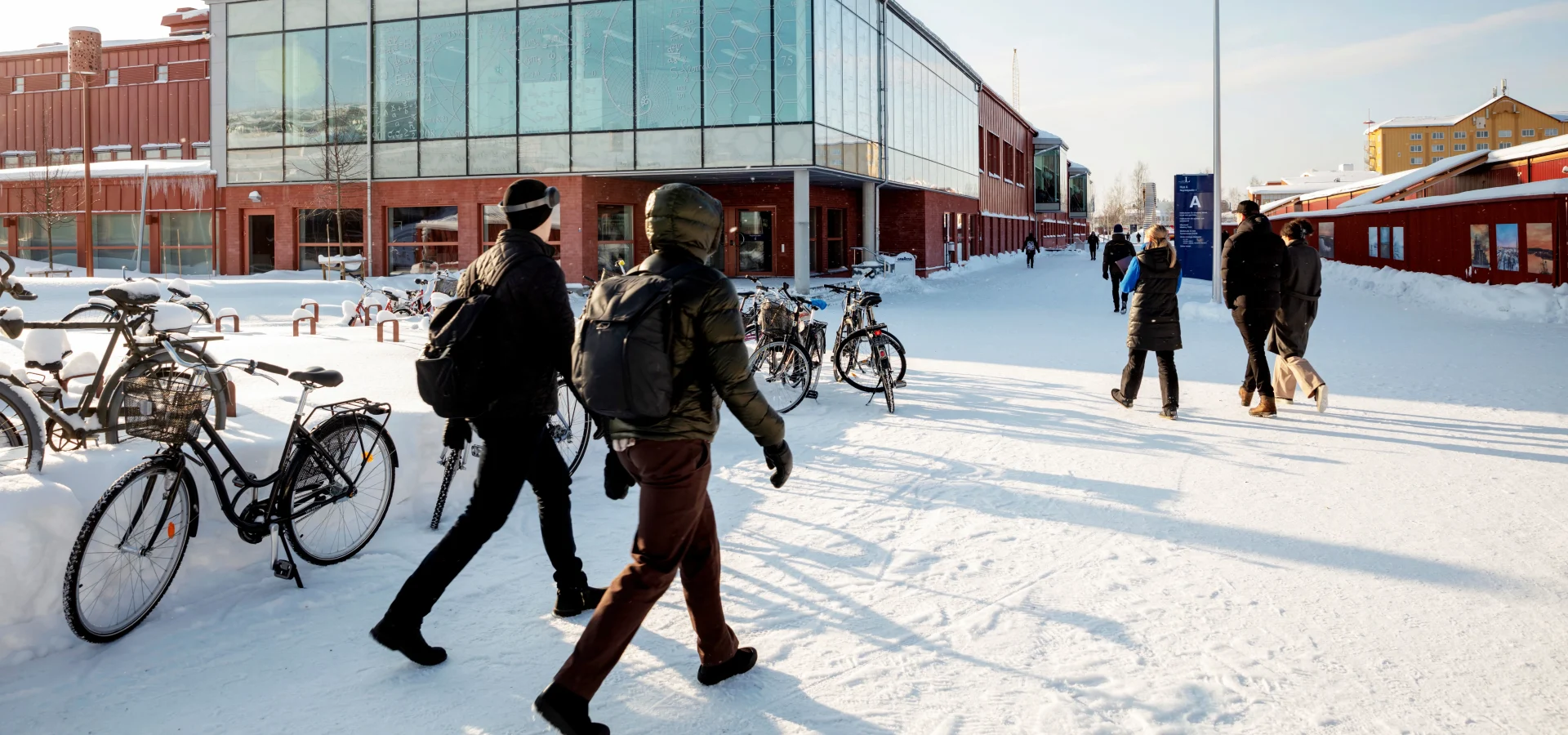
Type of Employment Full-time
Job position PhD student
Work model On location
Application due date 2 June 2025
PhD student in hydrometallurgical recycling
Luleå, Sverige
Type of Employment Full-time
Job position PhD student
Work model On location
Application due date 2 June 2025
Are you the one?
of critical metals for low carbon resource circulation
Luleå University of Technology is growing rapidly with world-leading expertise in several research areas. We shape the future through innovative education and groundbreaking research results, and based on the Arctic region, we create global social benefits. Our scientific and artistic research and education are conducted in close collaboration with international, national and regional companies, public actors and leading universities. We are currently 1,900 employees and have 18,700 students.
In the coming years, billions of kronor will be invested in Norrbotten and Västerbotten in major projects aimed at a more sustainable society nationally as well as globally. Luleå University of Technology is involved in several of these highly topical research projects and the social transformation that follows. We have a wide range of programs to match the skills that are in demand. We hope that you will help us build the sustainable companies and societies of the future.
In process metallurgy, we work on the efficient extraction of metals in a sustainable way from primary and secondary resources by pyro- and/or hydrometallurgical methods. Currently, we are looking for two PhD students in sustainable metal recycling - hydrometallurgy and circular economy - to perform research work related to hydrometallurgical recycling of critical metals for low carbon resource circulation.
As a PhD student, you will have the opportunity to be part of a dynamic and international team and to conduct research in close collaboration with senior researchers in the group and in industry.
Subject description
Process metallurgy deals with the sustainable extraction of metals from primary and secondary raw materials by both pyrometallurgical and hydrometallurgical processes.
Project description
As a PhD student, you will use advanced hydrometallurgical techniques to develop new recycling methods for an efficient and low-carbon extraction, focusing mainly on the extraction of rare earth elements, lithium, cobalt, nickel, manganese and phosphorus from end-of-life waste materials. Specifically, but not limited to feedstock such as (i) assessment of low carbon circular economy for rare earths from permanent magnets and (ii) closed-loop recycling of electrode elements from end-of-life rechargeable (Li-ion) batteries.
The research you are conducting will aim not only to establish process parameters, reveal reaction kinetics and mechanisms and ensure high purity of the recycled materials, but also to analyze the life cycle, determine its contribution to the circular economy and evaluate its sustainability index, which will be integrated in the thesis. Based on basic research results and insights, you will further develop the research through prediction models and different product developments that can be tested on pilot scale.
This recruitment is linked to the Wallenberg Initiative in Materials Science for Sustainability (WISE, wise-materials.org). WISE, funded by the Knut and Alice Wallenberg Foundation, is the largest ever investment in materials science in Sweden and will involve extensive efforts at Sweden's top universities over a ten-year period. The vision is a sustainable future through materials science. Read more: https://wise-materials.org/
All early-stage researchers recruited to the WISE program will be part of the WISE Graduate School (https://wise-materials.org/research-school/) an ambitious national program of seminars, courses, research visits and other activities to foster a strong interdisciplinary and international network between PhD students, postdocs, researchers and industry.
Duties and responsibilities
As a PhD student, you are expected to perform both experimental and theoretical work within your research studies and to communicate your results at national and international conferences and in scientific journals. Most of your working time will be devoted to your own research studies. Project planning and independently developing the research topic are also an important part of your work. In addition, you may have the opportunity to participate in teaching and other activities as required.
Qualifications
We are looking for you who are interested in research on sustainable matrices in metallurgy, especially using water-based (chemical and microbial) metallurgy. You must have a Master's degree in Chemistry, Chemical/Metallurgical Engineering, Materials Science or a related subject. Your duties will require excellent knowledge in at least one of the following topics: inorganic chemistry, analytical chemistry, solution chemistry, electrochemistry, organometallic chemistry, surface chemistry, microbial growth mechanism and metal-microorganism interactions. Experience in hydrometallurgical extraction of metals, mineral and materials chemistry, metal recovery, handling of analytical instruments such as ICP, XRD, SEM, XRF, TG-DTA etc., as well as industrial experience is an advantage. Experience in machine learning and statistics is a further advantage.
For further information on a specific topic, see link
curricula for postgraduate studies in the Faculty of Engineering
Additional information
Employment as a PhD student is limited to 4 years, teaching and other institutional tasks can be added with a maximum of 20%. You will be based in Luleå. Start: according to agreement.
For further information about the position, please contact Assistant Professor Sadia Ilyas, (+46)920-49 3905, sadia.ilyas@ltu.se
Trade union representative:
SACO-S Diana Chroneer, (+46)920-49 2037 diana.chroneer@ltu.se
OFR-S Marika Vesterberg, (+46)920-49 1721 marika.vesterberg@ltu.se
In case of different interpretations of the English and Swedish versions of this advertisement, the Swedish version prevails.
How to apply
We prefer that you apply for this position by clicking on the application button below. The application should include a CV, a cover letter and copies of verified high school and university diplomas. Please mark your application with the reference number below. Your application, including diplomas, must be written in English or Swedish
Deadline for applications: June 2, 2025
Reference number: 2174-2025
